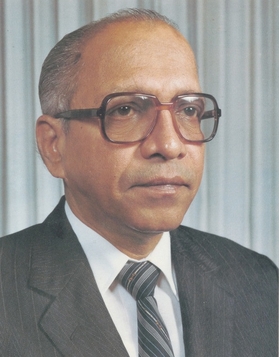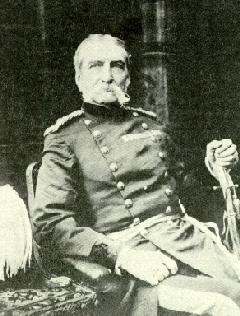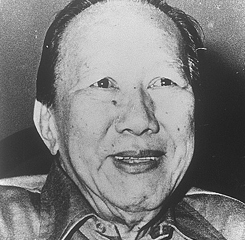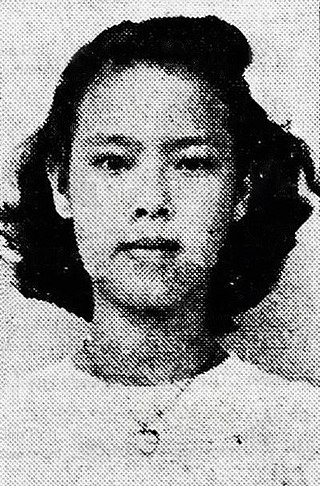
Patrick Joseph Johnson was a member of the Municipal Commission of Singapore representing the Labour Party and a lawyer.

Patrick Joseph Johnson was a member of the Municipal Commission of Singapore representing the Labour Party and a lawyer.
Johnson was born to a working class family in Cardiff. He received his education in British Malaya. [1]
Johnson was initially employed as a temporary clerk. He joined the Malayan Forestry Department in 1925, eventually rising to the rank of extra assistant conservator of forests before his retirement from civil service in 1939. In 1943, he was called to the Bar at the Inner Temple. He then became a member of the Fabian Society, the Haldane Society of Socialist Lawyers and the Socialist Party of Great Britain. [1]
Johnson joined the Labour Party. He won April 1949 Singapore Municipal Commission election for North Ward, and was the only Labour candidate to have won a seat in the election. [2] In June, he was asked by the rest of the commissioners to draft a legislation for the requisitioning and control of all vacant premises in Singapore. [3] In June 1950, Johnson refused to serve as the party's president or vice-president despite being nominated as his confidence in the party was "shaken". [4] He left the party in July. [5] His resignation was accepted by the party during a meeting of the party's General Council on 25 August. [6] However, he retained his seat as an Independent Labour Commissioner. [7] He retired from the commission in 1951. [8] He also served as a solicitor and a barrister in Singapore. [9]
He had a daughter. [10] On 11 December 1950, he was attacked by rioters during the Maria Hertogh Riots and was badly injured. He briefly went missing, and was found the next day in a drain. [11] [12] He regained consciousness on 15 December. [13] By 1953, he had moved to England. [14]

Cyril Northcote Parkinson was a British naval historian and author of some 60 books, the most famous of which was his best-seller Parkinson's Law (1957), in which Parkinson advanced the eponymous law stating that "work expands so as to fill the time available for its completion", an insight which led him to be regarded as an important scholar in public administration and management.

Tunku Abdul Rahman Putra Al-Haj ibni Almarhum Sultan Abdul Hamid Halim Shah was a Malaysian statesman and lawyer who served as the first prime minister of Malaysia and the head of government of its predecessor states from 1955 to 1970. He was the first chief minister of the Federation of Malaya from 1955 to 1957. He supervised the independence process that culminated on 31 August 1957. As an independent Malaysia's first prime minister, he dominated the country's politics for the next 13 years.

Chengara Veetil Devan Nair, also known as C. V. Devan Nair, better known as Devan Nair, was a Singaporean politician and union leader who served as the third president of Singapore from 1981 until his resignation in 1985.

Lim Yew Hock was a Singaporean-born Malaysian politician and diplomat who served as Chief Minister of Singapore between 1956 and 1959. He was the Member of Parliament (MP) for Cairnhill between 1959 and 1963 and previously a Member of the Legislative Council and later Legislative Assembly between 1948 and 1963. He was de facto Leader of the Opposition between 1959 and 1963. He and his family elected to take up Malaysian citizenship after Singapore's independence from Malaysia.

Wong Peng Soon, was a Malayan/Singaporean badminton player who reigned as a top player in Malaya from the 1930s to the 1950s when it was a single nation. Noted for his smooth but powerful strokes and graceful footwork, he won the singles title seven times in Singapore and eight times in Malaya during this period, as well as being the top player in the All England, the Danish Open, the Indian and Philippines championships to name a few.

Lieutenant General Sir Andrew Clarke, was a British soldier and governor, as well as a surveyor and politician in Australia.
Karak is a small town in Bentong District, Pahang, Malaysia. Located at the foothills of Malaysia's Titiwangsa Mountain Range, it is well known as a rest town along the Federal Route 2 from Kuala Lumpur to Kuantan and lends its name to the Karak Highway, or the Kuala Lumpur-Karak Expressway linking it to the country's capital of Kuala Lumpur.
Tan Sri Devaki Ayathurai Krishnan was a Malaysian politician. She became the first woman elected to public office in Malaysia when she won a seat on the Municipal Council in Kuala Lumpur in 1952. She later became a life member of the Malaysian Indian Congress (MIC). She was the grandmother of Deputy Minister of Entrepreneur Development and Cooperative and Member of Parliament (MP) for Sungai Buloh Ramanan Ramakrishnan.

The Bank of China Building is a development consisting of two skyscrapers located in the central business district of Singapore. It is located on 4 Battery Road, adjacent to 6 Battery Road, Maybank Tower, and roughly 100 metres from the Fullerton Hotel. The Tower serves as the headquarters for the Bank of China.
Van Kleef Aquarium was an oceanarium located along River Valley Road, at the foot of Fort Canning Hill, in Singapore. Fully air-conditioned, the aquarium had 6,500 animals at the time of opening, which were housed in freshwater, seawater, and swamp tanks respectively.

Heah Joo Seang was a Malayan politician, business leader, rubber magnate, philanthropist and especially a supporter of education. Malaysia, as it has since become, only existed after Joo Seang's death. His contributions span three distinct periods in the country's history: the British Malaya period, the Malayan Union period, and the Federation of Malaya period.

Joseph Choo Seng Quee, popularly known as Uncle Choo, was a Singaporean footballer and football coach. He was coach of the Indonesia, Malaya/Malaysia and Singapore national teams. He is widely recognised as one of Singapore's best football coaches.

Ismail bin Marjan was a badminton player from Malaya/Singapore who had won many individual and doubles titles at local, regional and international competitions throughout the 1940s and 1950s. He was best known for his doubles prowess as he partnered Ong Poh Lim to win several major honors in Asia and Europe. Ismail was the first Malay to have won the prestigious Thomas Cup.
Sandrasegaran "Sidney" Woodhull was a Singaporean lawyer, former politician and political prisoner. He was a founding member of the University of Malaya's University Socialist Club, and the Singapore's political parties, People's Action Party and the Barisan Sosialis.
Wilfred Lawson Blythe was a British colonial administrator who served as the second Colonial Secretary of Singapore from 30 June 1950 to 30 July 1953.

Brigadier Sir Patrick Alexander Bruce McKerron, known as Patrick McKerron was a British Army officer and colonial administrator. He joined the Malayan Civil Service in 1920 as Assistant Superintendent before retiring as Colonial Secretary of Singapore in 1950.

Amy Ede was an early female politician in Singapore and a pioneer of the orchid trade on the island. She was the second female member of the Singapore Municipal Commission. Three orchid hybrids are named after her.
Rajabali Jumabhoy was a businessman, politician and the chairman of Scotts Holdings in Singapore.

Helen Heng Siak Neo was a Singaporean badminton player who won numerous titles in the late 1940s to the mid 1950s. She was Singapore's badminton star of the 1950s and was the youngest winner of the Malaysia Open women's singles and doubles titles when she won it at the age of 15. Helen was also the most successful female shuttler in Singapore Open history with 15 titles and the first female player from Singapore to participate in the Uber Cup as part of the Malayan team in 1956.